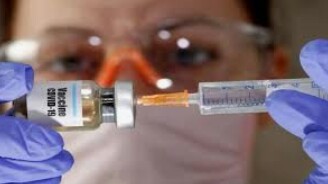As the number of coronavirus cases continues to rise at an alarming rate across the globe, scientists and medical experts are making accelerated efforts to develop a vaccine fit for human use. Currently, there are more than 160 vaccine candidates in different stages of production and 27 of these have reached the human trials. While the vaccine created by Oxford University and drugmaker AstraZeneca is considered one of the frontrunners in the race to develop a coronavirus jab, Russia is all set to become the first country in the world to launch its coronavirus vaccine.
The vaccine candidate developed by Russia’s Gamaleya National Research Centre and Russian defence ministry has been raising eyebrows ever since the announcement of it being the ‘world’s first COVID-19 vaccine’ started doing rounds. As per the recent updates, the coronavirus vaccine is all set to get registered on August 12, 2020, making Russia the first country in the world to register a vaccine to battle the novel coronavirus.Russia’s vaccine candidate is an adenovirus-based viral vector vaccine which is combined with the spike protein of the SARS-CoV-2 virus to induce an immune response in the body. Addressing speculations about the safety and efficacy of the vaccine, Alexander Gintsburg, director of the Gamaleya National Research Centre maintained that the coronavirus particles in the vaccine cannot harm the body as they cannot multiply. Alexander Chepurnov who is the former head of infectious diseases at Vektor said that the danger is there in terms of the possibility of increasing the disease‘s severity with the wrong vaccine.Pointing out that there is always a scope of ‘infection intensifying’, he said, “With some diseases —and for the coronavirus, this is already known that the infection can intensify with the presence of certain antibodies. So it should be known which antibodies the vaccine forms.”It should be noted that the World Health Organization has already sternly advised the Russian authorities to proceed as per the already established guidelines to produce a safe and effective coronavirus vaccine.




